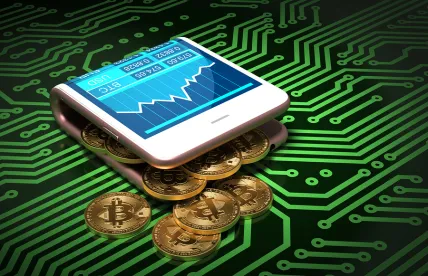During congressional debates over the Coronavirus Aid, Relief, and Economic Security Act (CARES Act), a relatively novel idea was the focus of proposals from the Senate and House of Representatives: “digital dollars.” Several legislative proposals introduced the idea to address the delay between passage of the CARES Act and distribution of direct stimulus payments to taxpayers, one of the pillars of the act. While the concept did not find its way into the final bill, its inclusion in proposals from both the Senate and House indicate that the viability – and specific application – of a central bank digital currency may be emerging.
In the Senate, Ranking Senator Sherrod Brown (D-OH) introduced the Banking for All Act (BAA) on March 24, 2020. Senator Brown touted the BAA as an avenue for rapid payment of stimulus checks to individuals. Specifically, the BAA would allow all residents and citizens of the United States, and businesses domiciled in the United States, to set up a free digital dollar wallet, called a “FedAccount”, which would be maintained by member national, state and local banks, as well as U.S. Post Offices. A FedAccount would allow a holder “receive payments from the United States pursuant to a Federal law relating to the coronavirus disease 2019 (COVID-19),” as well perform more general tasks such as withdrawing and receiving money, and making payments.
As the name suggests, FedAccounts provide a direct connection between the Federal Reserve and individuals. Traditionally, banks act as intermediaries. In fact, the BAA defines “digital dollars” as “dollar balances consisting of digital ledger entries recorded as liabilities in the accounts of any Federal reserve bank.”
The BAA also provides for several consumer protections, including, among other things, that FedAccounts:
-
not be subject to account fees or minimum or maximum balances;
-
pay interest at a rate of at least the greater of the rate of interest on (a) required reserves and (b) excess reserves;
-
be provided with functionality and service levels “no less favorable” than levels offered by maintaining banks to their paying customers, including provision of debit cards, access to ATM, mobile and online services, automatic bill-pay and customer service (but excluding overdraft protection); and
-
provide reasonable protection against fraud and security breach-related losses.
Large banks with more than $10 billion in consolidated assets would be obligated to promptly provide and maintain FedAccounts through a separately established legal entity. As an incentive for smaller banks to participate, the BAA would provide for quarterly coverage of costs associated with offering FedAccounts to banks with less than $10 billion in consolidated assets. Senator Brown claims the BAA would “allow every American to set up a free bank account so they don’t have to rely on expensive check cashers to access their hard-earned money.”
Two earlier drafts of House stimulus bills in the days leading up to the passage of the CARES Act contained provisions substantially similar to those of the BAA: Representative Nita Lowey’s (Chairwoman of the House Appropriations Committee) initial draft of the “Take Responsibility for Workers and Families Act” and Representative Maxine Waters’ (Chairwoman of the Financial Services Committee) initial draft of the “Financial Protections and Assistance for America’s Consumers, States, Businesses, and Vulnerable Populations Act.”
The CARES Act was passed sans any reference to a digital dollar or wallet, but such a novel concept introduced during a time of crisis, and which has yet to have a serious, significant debate at the legislative level, likely did not stand a great chance. However, the introduction of a central bank digital currency to major pieces of legislation displays an openness to the idea. Moreover, the specific application during the COVID-19 crisis may prove persuasive in the future. Proponents of a digital dollar may still hold out hope, as Senator Brown is expected to push forward with his efforts on the BAA.



 />i
/>i

